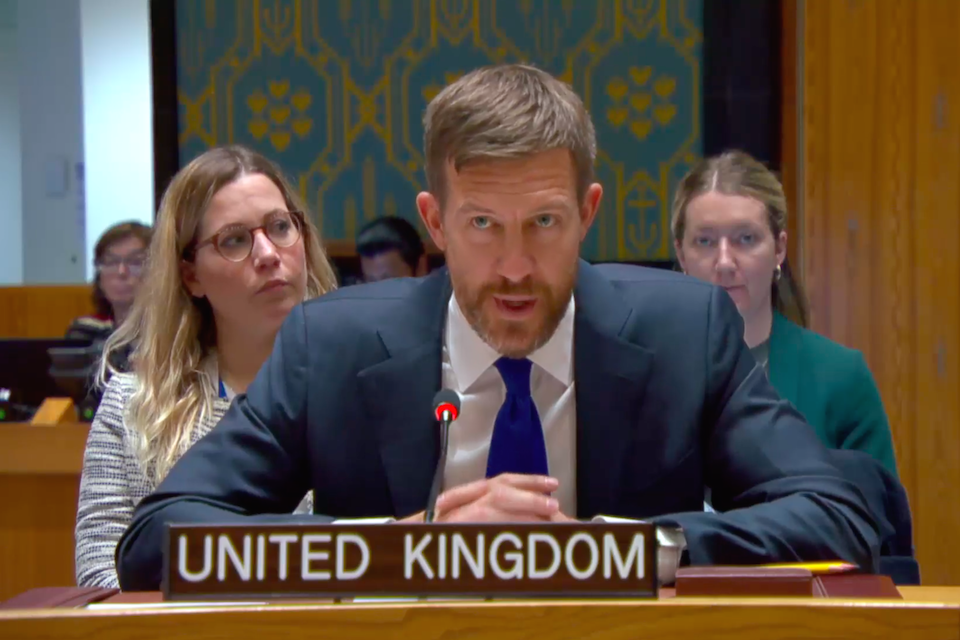Resolution 1540 remains a key pillar of the international disarmament and non-proliferation architecture: UK statement at the UN Security Council
Statement by Deputy Political Coordinator Thomas Phipps at the UN Security Council meeting on the non-proliferation of weapons of mass destruction.

Thank you, President. Let me begin by joining others in thanking Ecuador for its committed and proactive stewardship of the 1540 Committee. We commend Ambassador De La Gasca and his team for both the briefing today but also for their efforts to rejuvenate the Committee despite challenging dynamics, including those which the Representative of the United States set out so clearly today.
Let me also express gratitude to the Committee’s Group of Experts for their support of the Committee’s activities. We look forward to the addition of new Experts, as this will inject new technical knowledge and experience, which is vital to the continuation of effective Committee support to States.
President, as various colleagues have mentioned today, this year in April we will mark the 20th anniversary of UN Security Council resolution 1540, a milestone resolution that defined a non-proliferation mandate for the international community and established a Committee to monitor Member States’ implementation of its provisions. We are grateful for the efforts of Member States and organisations that have supported the implementation of the resolution since it was adopted in 2004.
President, although two decades have passed since its adoption, 1540 remains important. The weapons of mass destruction threat has evolved, and new challenges are emerging. Against this background, 1540 remains a key pillar of the international disarmament and non-proliferation architecture, designed to prevent the proliferation by non-state actors of chemical, biological and nuclear weapons, as well as their means of delivery.
Full implementation of this resolution remains a long-term task, which we can achieve more quickly through collective action. We therefore call on all States to implement their obligations under this resolution.
As the Committee and its Group of Experts seeks to take forward the outcomes of Security Council resolution 2663, the UK stands ready to provide legal and regulatory expertise, as well as broader support to States looking to meet their obligations and strengthen their national regulatory frameworks, including their ability to implement laws and regulations governing chemical, nuclear and biological activities.
I thank you, President.